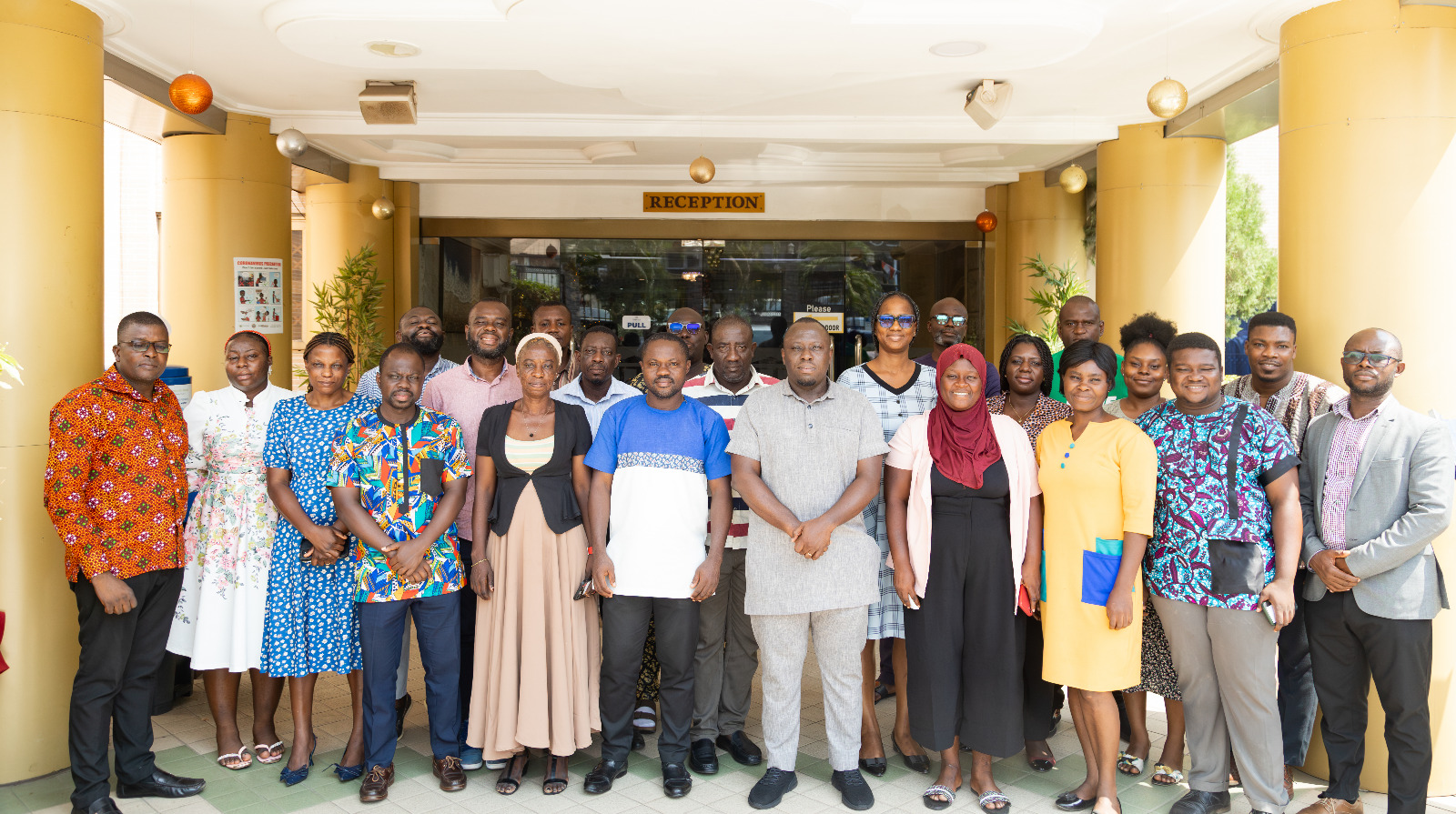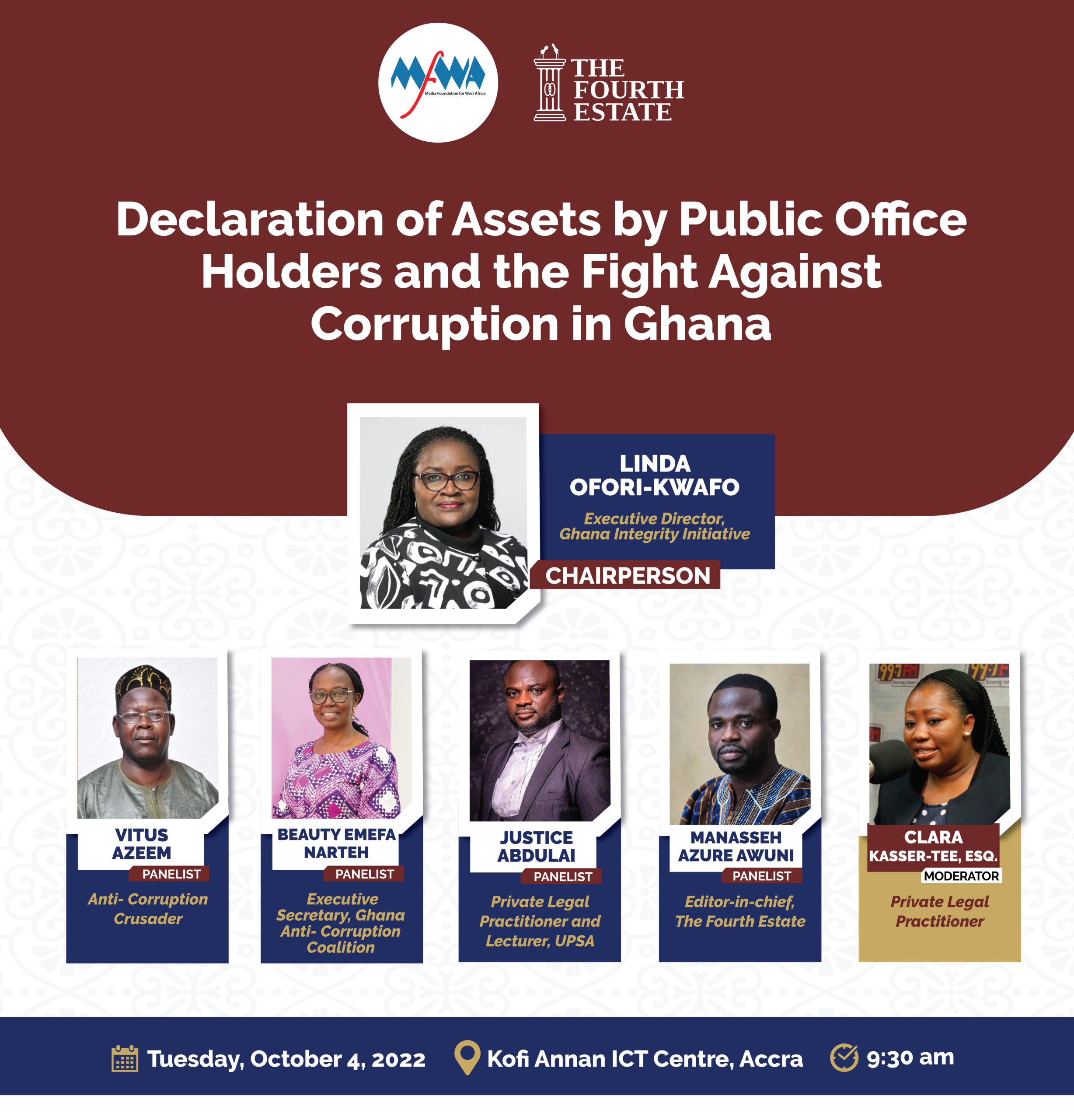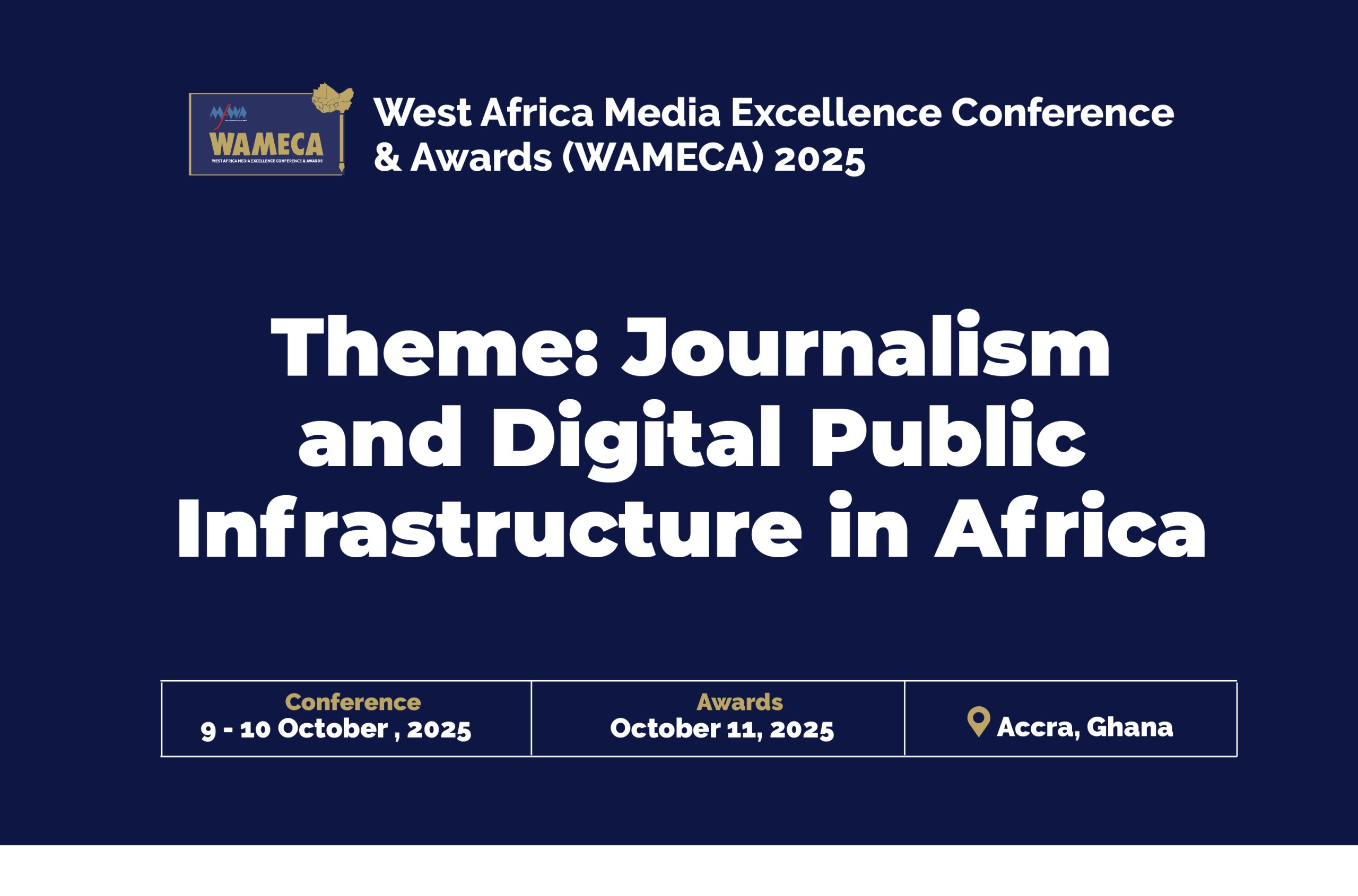As part of activities being implemented under the “Tax for Development” project funded by NORAD through OXFAM in Ghana, the Media Foundation for West Africa (MFWA) has trained selected journalists on Forest Management, Carbon Market, and Revenue Mobilization.
The two-day training, which was held in Accra from 12 – 13 December 2024. introduced participants to Ghana’s Carbon Market architecture and forest management framework to enhance awareness creation and quality reporting on these critical subjects.
The training formed part of measures to empower journalists to understand and prioritise reporting on issues relating to forests and biodiversity conservation, environmental and climate protection, and livelihoods of many communities.
Ghana’s forests are severely threatened by deforestation, illegal logging, and other illegal activities. Also, knowledge gaps in forest management and the ecosystem surrounding carbon markets impede the advocacy work of stakeholders, particularly the media, in contributing to and promoting awareness and accountability efforts.
Article 6 of the Paris Agreement enables countries to cooperate with each other to achieve their Nationally Determined Contributions (NDCs) through cooperative approaches, the Sustainable Development Mechanism, and non-market approaches. Carbon markets, including compliance and voluntary markets, play a crucial role in reducing greenhouse gas emissions by putting a price on carbon, creating a market for carbon credits, and promoting sustainable development.
Ghana is one of the few countries in Africa to develop a comprehensive Carbon Market Framework – an initiative that seeks to unlock investments to create green businesses and provide jobs.
During the training, Mr Daniel Lamptey, Principal Programmes Officer, EPA, took participants through activities by the Government of Ghana in operationalising the country’s carbon market framework as one of the conditions to achieve its climate actions under the NDCs.
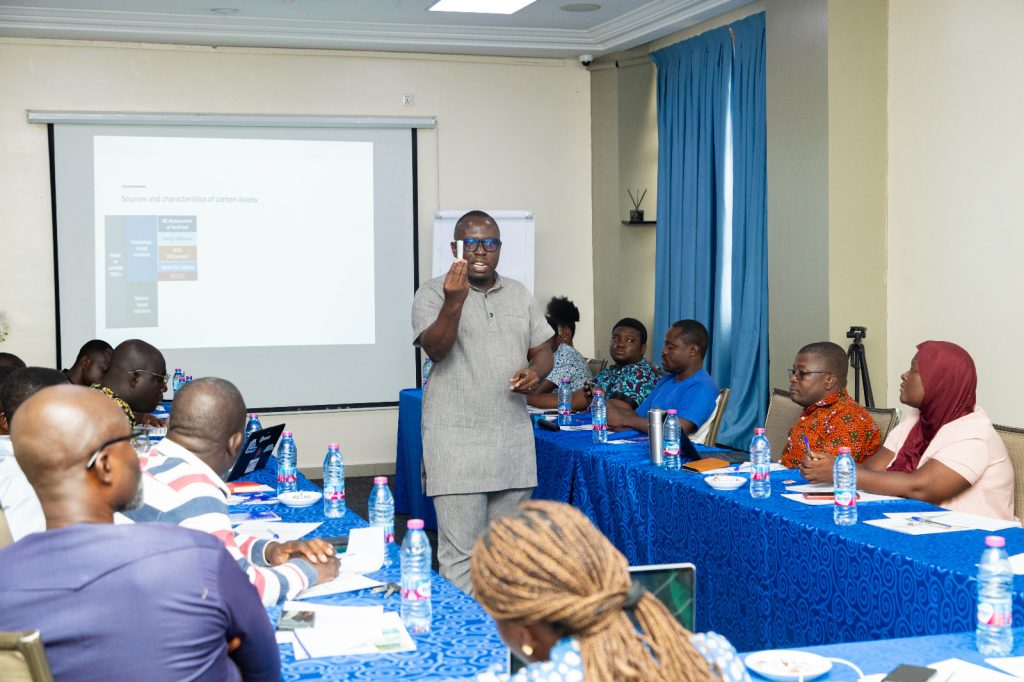
He said the Carbon Market framework was one of the ways to mobilise funding from the private sector to implement conditional climate actions.
He urged the participants to read more on the carbon market framework and highlight the opportunities in the sector to boost private sector participation and raise funding to undertake critical climate interventions and create sustainable jobs.
“Even though the Government has laid the foundation, we are not seeing traction from the private sector. One of the ways to address this gap is to partner with the media and also enhance their understanding of the framework. Shining light on what has been done will create the momentum to do more,” he said.
Mr. Daryl Bosu, Deputy National Coordinator at A Rocha Ghana, revealed to the participants that every year, Ghana losses two per cent of her 266 Forest Reserves, constituting 2.6 million hectares of gazetted area.
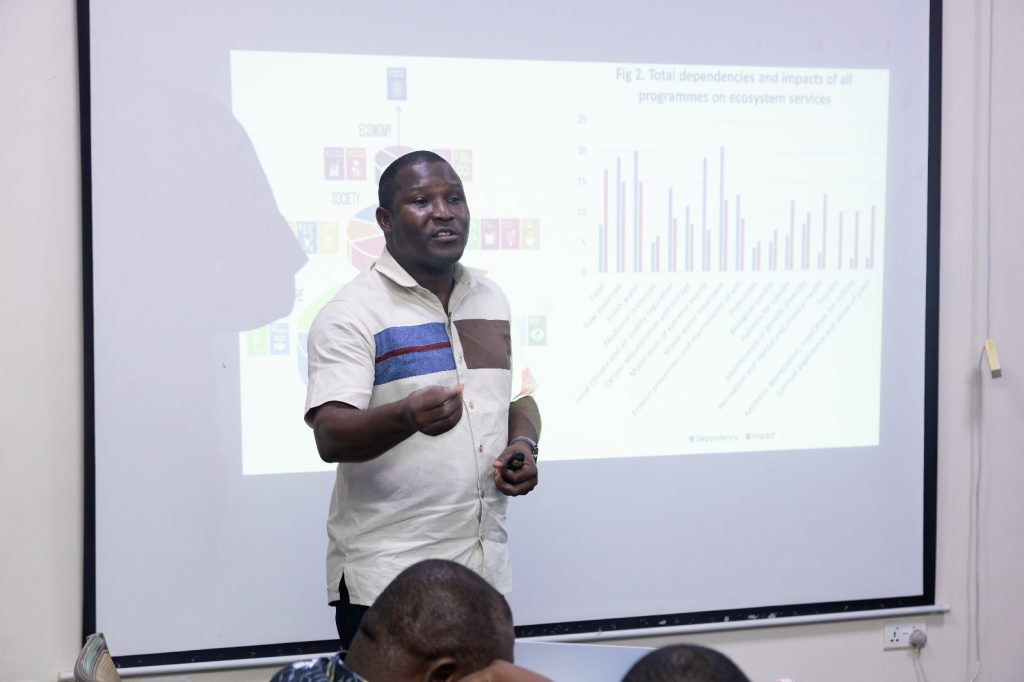
He said illegal mining remained a major threat to the depletion of Ghana’s forest resource and threatened biodiversity conservation as well as protection of water resources.
Mr. Bosu encouraged the journalists to study the various policies and legal frameworks underpinning Ghana’s forest management structures and institutions to be able to follow the issues thoroughly and demand accountability.
Ms Rosemond Ebi-Adwo Aryeetey, Senior Programmes Manager, MFWA said the training empowered journalists to understand the technical issues relating to carbon market and forest management to enable them support awareness creation on the topics.
“Our expectation is that with all that has been shared by the facilitators, the participants have gotten new ideas to pursue impactful stories to improve our forest management and enhance our climate actions,” she said.
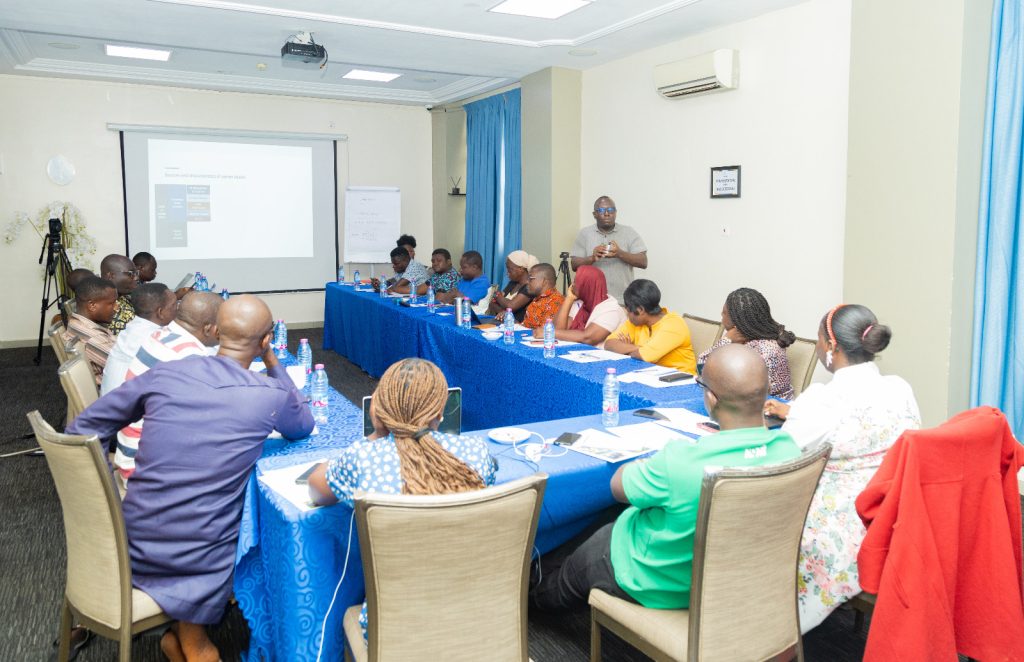
Some of the journalists shared the benefits of the training and some story ideas they will pursue after the training. Rachel Kakraba from the Ghana Broadcasting Corporation noted that “the training has been an eye-opening experience which will go a long way in shaping my write-ups”…. I would want to explore how the Amanzule wetland in the Western Region can be transformed into a Ramsar site for the promotion of biodiversity”.
Ishmael Barfi from The New Independent also had this to say; “The training has improved my understanding of forest management principles, practices and policies in Ghana”
“I intend to do story on the opportunities and challenges on Ghana’s carbon market for sustainable development”.



